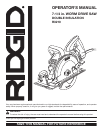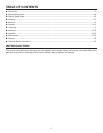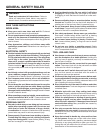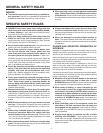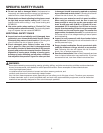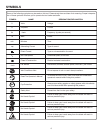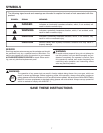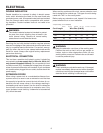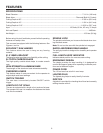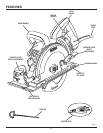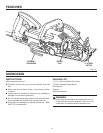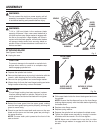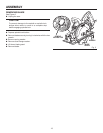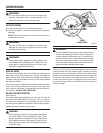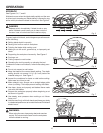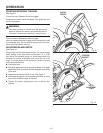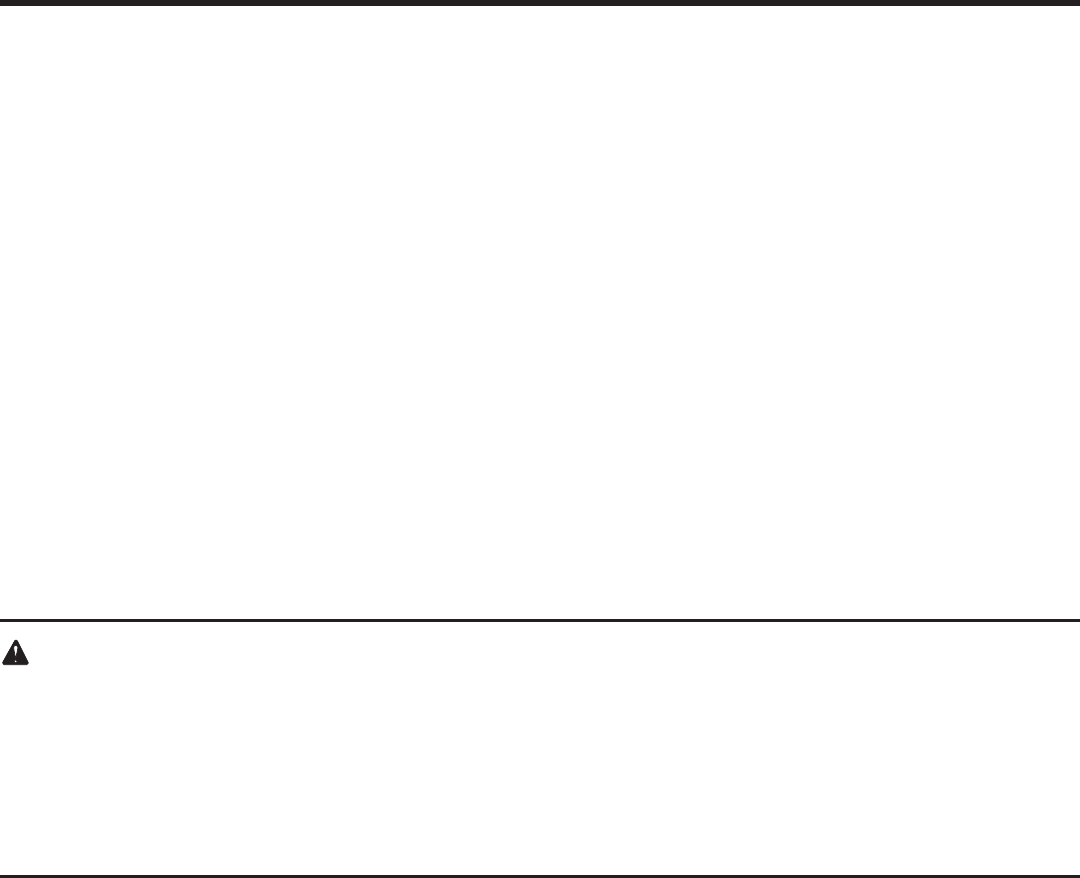
4
5
n Do not use dull or damaged blade. Unsharpened or
improperly set blades produce narrow kerf causing ex-
cessive friction, blade binding and KICKBACK.
n Blade depth and bevel adjusting locking levers must
be tight and secure before making cut. If blade ad-
justment shifts while cutting, it may cause binding and
KICKBACK.
n Use extra caution when making a “Pocket Cut” into
existing walls or other blind areas. The protruding blade
may cut objects that can cause KICKBACK.
ADDITIONAL SAFETY RULES
n Inspect tool cords periodically and, if damaged, have
repaired at your nearest Authorized Service Center.
Constantly stay aware of cord location. Following this
rule will reduce the risk of electric shock or fire.
n Check damaged parts. Before further use of the
tool, a guard or other part that is damaged should
be carefully checked to determine that it will operate
properly and perform its intended function. Check for
alignment of moving parts, binding of moving parts,
breakage of parts, mounting, and any other conditions
that may affect its operation. A guard or other part that
is damaged should be properly repaired or replaced
by an authorized service center. Following this rule will
reduce the risk of shock, fire, or serious injury.
n Make sure your extension cord is in good condition.
When using an extension cord, be sure to use one
heavy enough to carry the current your product will
draw. A wire gage size (A.W.G.) of at least 12 is rec-
ommended for an extension cord 50 feet or less in
length. A cord exceeding 50 feet is not recommended.
If in doubt, use the next heavier gage. The smaller the
gage number, the heavier the cord. An undersized cord
will cause a drop in line voltage resulting in loss of power
and overheating.
n Inspect for and remove all nails from lumber before
using this tool. Following this rule will reduce the risk of
serious personal injury.
n Drugs, alcohol, medication. Do not operate tool while
under the influence of drugs, alcohol, or any medica-
tion. Following this rule will reduce the risk of electric
shock, fire, or serious personal injury.
n Save these instructions. Refer to them frequently and use
them to instruct others who may use this tool. If you loan
someone this tool, loan them these instructions also.
SPECIFIC SAFETY RULES
WARNING:
Some dust created by power sanding, sawing, grinding, drilling, and other construction activities contains chemicals
known to cause cancer, birth defects or other reproductive harm. Some examples of these chemicals are:
• lead from lead-based paints,
• crystalline silica from bricks and cement and other masonry products, and
• arsenic and chromium from chemically-treated lumber.
Your risk from these exposures varies, depending on how often you do this type of work. To reduce your exposure
to these chemicals: work in a well ventilated area, and work with approved safety equipment, such as those dust
masks that are specially designed to filter out microscopic particles.



